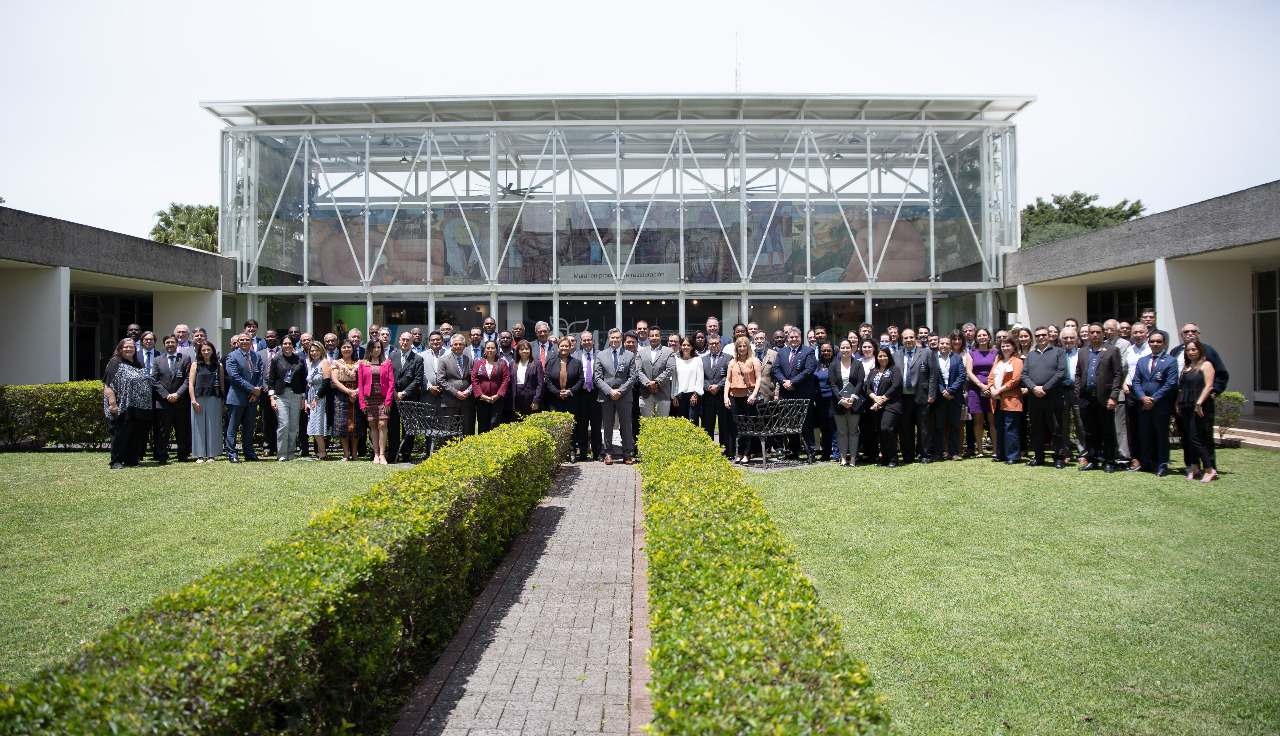They also emphasized that farmers alone cannot shoulder the burden of the damages resulting from climate change or the sole responsibility for the necessary investment to transform the agriculture sector. Thus, it is imperative that developed countries honor their commitments to provide international financing.

San Jose, 26 September 2022 (IICA) – There was overwhelming consensus among ministers and secretaries of Agriculture of 32 countries of the Americas that will support the action of these countries at COP27. All agreed that climate actions to boost the sustainability of agriculture should be science-based, as a means of safeguarding and boosting productivity and to avoid compounding the ongoing food crisis, which is already a cause for concern.
They also emphasized that farmers alone cannot shoulder the burden of the damages resulting from climate change or the sole responsibility for the necessary investment to transform the agriculture sector. Thus, it is imperative that developed countries honor their commitments to provide international financing.
These were some of the messages included in a consensus document arising out of a meeting that was also attended by representatives of multilateral credit agencies and global climate financing funds.
The two-day meeting was convened by the Inter-American Institute for Cooperation on Agriculture (IICA) at its headquarters in San Jose, Costa Rica, to discuss the strategic role of the region’s agriculture sector in tackling climate change, ahead of the Conference of the Parties (COP27) in November, and to coordinate regional positions for this forum. The session also encouraged the sharing of information and experiences that will support the action of the countries.
The document warned that the combined effect of increased food insecurity and the global climate situation are posing a serious threat throughout the planet and that the crisis must be addressed in an in-depth manner and as a matter of urgency.
The point was also made that the agrifood sector of the countries of the Americas—one of the world’s leading food producing regions—is highly vulnerable to extreme climate phenomena, particularly in the Caribbean and Central America.
The ministers indicated that, “Production, livelihoods and the natural resource base have been affected by the growing impact of climate change, which has exacerbated problems associated with increased poverty, hunger and the price of food, affecting global food security”.
The ministers of Agriculture also committed to working to ensure that all countries in the region, including the most vulnerable countries, are given increased access to climate financing funds, as a means of strengthening adaptation.
Furthermore, it was announced that IICA and other international organizations would assist in enhancing the presence of ministers and secretaries of Agriculture, Livestock and Fisheries in national, hemispheric and global climate discussions.
These positions will be taken to COP27, which is slated to take place in the Egyptian city of Sharm El Sheik in November. The region will also use the opportunity to share extensive information about sustainable practices in agriculture in the Americas.
Presence of agriculture in climate discussions
At the close of the meeting, Víctor Carvajal Porras, Minister of Agriculture and Livestock of Costa Rica, thanked IICA, all the facilitators of the meeting and each of the participants. He remarked that, “Today, we are ending our discussions, where we have engaged in a very important and very enriching exchange of ideas, as part of this process to determine a joint position of the Americas, of the agriculture sector, to present at COP27. We have clearly understood that our task, in this sense, will be to focus on those individuals who work in agricultural production”.
Manuel Otero, Director General of IICA, stated, “This meeting marks a turning point for the agriculture sector of the Americas, which will have a strong presence at the upcoming COP27 in Egypt. This is not about ousting environmental negotiators, but rather about joining forces”.
“We need a new narrative: one that will make it clear that we are not the bad guys. We are a strategic sector that can make a key contribution to addressing global challenges through mitigation and adaptation”, added Otero.
With respect to the current global food crisis, the document agreed upon by the delegations of the countries of the Americas underscores the fact that agriculture is part of the solution to the factors that have caused the climate crisis. It notes that production methods in the Americas have been improving their sustainability for years, incorporating practices and technologies that allow for sustainably increasing food production and reducing its environmental footprint.
The ministers and secretaries adopted a series of relevant commitments, which will seek to expand practices aimed at preserving natural resources; increase productivity and sustainability through scientific and technological advances; and build on efforts undertaken at COP 27 to continue developing a more resilient agriculture sector that contributes to climate change mitigation.
Some of the commitments undertaken are to:
– Strengthen efforts to develop sustainable practices aimed at improving water management and soil health; reducing food loss and waste; promoting the circular economy; ensuring optimal and precise use of fertilizers; and fostering agrosilvopastoral systems.
– Adopt science-based decisions that allow for increasing agricultural productivity and sustainability simultaneously; as well as acknowledge the fact that the broad diversity of production systems in the region requires solutions that have been adapted to local realities and that any transition must be fair and leave no one behind.
– Continue to recognize that the Americas is home to one of the largest reservoirs of biodiversity, water resources and tropical forests in the world, for which they reaffirmed their commitment to accelerate global climate action.
– Express support and hope for a successful outcome for COP27, in terms of prioritizing an ambitious and fair transition towards a low-emission agriculture sector that is more adapted and resilient to climate change and able to increase its carbon sequestration, through greater climate investment, adequate levels of funding, science-based trade rules, co-innovation and capacity building, while reaffirming that there is no one-size-fits-all production model.
More information:
Institutional Communication Division.
comunicacion.institucional@iica.int










